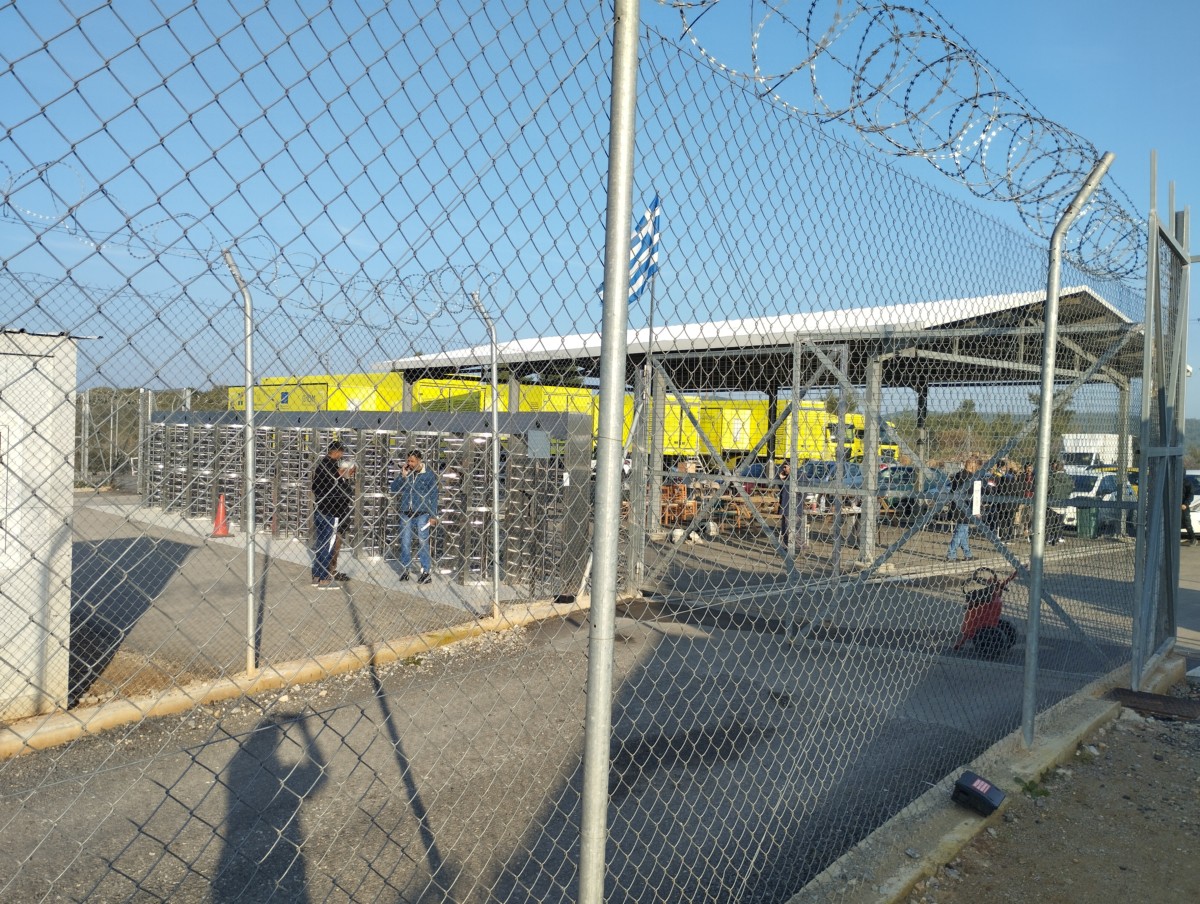
On 14 June, hundreds of refugees and migrants lost their lives in the Mediterranean’s deadliest shipwreck in nearly a decade. As many as 750 individuals are believed to have been in the boat when it capsized, but just 104 were found alive. Taken ashore, survivors were met not with protection and sanctuary, but detention in prison-like conditions. Their treatment is symptomatic of a broader concern in Greece: a lack of appropriate support for vulnerable migrants and refugees.
Deadly Shipwreck
In the early hours of 14 June, the Adriana–a boat carrying up to 750 migrants and refugees from countries like Syria, Afghanistan, and Pakistan–capsized inside the Greek Search and Rescue Zone (SAR), about 80 km off the coast of Pylos. While the Hellenic Coast Guard, which was near to the boat at the time it capsized, quickly denied any responsibility for the disaster and claimed that its offers of assistance were ignored, survivors contest this account.
According to them, the Coast Guard made several attempts to tow the boat, supposedly in an effort to move it towards Italian waters, which ultimately led to it capsizing. As Judith Sunderland, Associate Director of the Europe and Central Asia division at Human Rights Watch told Syria Direct: “Given the history of misconduct by the Greek coast guard and its documented involvement in pushbacks, we certainly have reason to question their version of events.”
A joint investigation by Forensis, the Guardian, the Greek Council for Refugees, Alarm Phone, Solomon, and STRG_F (ARD/FUNK) found that the Coast Guard had attempted to “distort and manipulate evidence related to the incident and silence witness accounts.” This included ordering other vessels to leave the scene, ignoring offers of assistance from Frontex, and confiscating survivors’ phones.
Rescued, Then Detained
Immediately after their rescue, survivors were treated as “irregular arrivals” by Greek authorities, and placed in a warehouse in the Port of Kalamata where observers described conditions as “detention-like.” Here, according to a report by Zeit Online, anyone who still had a mobile phone was required to hand it over to authorities. Survivors were forced to sleep on mattresses on the floor and were prevented from leaving the site, even to meet with friends and relatives who had arrived to see them. This was made all too clear, when journalists filmed an emotional reunion of brothers through bars. According to Refugee Support Aegean (RSA), even survivors who were hospitalised were unable to see relatives, as authorities claimed that they were detained.
Shortly afterwards, on 16 and 17 June, many of the survivors were transferred to Malakasa Reception and Identification Centre (RIC) outside Athens–a facility which has previously held survivors of other shipwrecks, including those rescued from a wreck off the coast of Kythera on 5 October 2022. The RIC–one of several in Greece–is designed to temporarily hold irregular arrivals while they undergo reception and identification procedures, and submit asylum applications. Individuals are not free to come and go during this process–instead, they are subject to strict movement restrictions which can last for up to 25 days.
Observers have lambasted the facility as being unsuitable for survivors of traumatic events, characterising it as a de facto detention centre because people may be arbitrarily deprived of their liberty in violation of EU asylum laws and regulations. Speaking to the Global Detention Project, RSA–which has previously gained entry to the site–described the facility as comprised of numerous containers in which detainees share sleeping and living space with only minimal levels of privacy.
With their phones lost or confiscated, many struggled to contact friends and relatives to update them on the situation. Instead, they relied on others in the camp lending them their devices. Authorities did not provide survivors with phones, said RSA–and only a few were assisted by the Red Cross.
According to the NGO, although Malakasa has psychologists available, few of the survivors received psychological assistance because medical professionals did not actively reach out to them. MSF, meanwhile, provided emergency support on a few occasions.
Given the nature of the facility, detainees were also required to quickly complete their asylum applications here–before they even have time to consult a lawyer. RSA, which has provided legal assistance to some of the survivors, noted in a statement that: “They were subjected to the demanding process of asylum interviews under extremely truncated procedures without sufficient time for preparation, legal assistance of appropriate psychosocial support. Survivors were asked to detail the reasons for fleeing their countries in interviews that do not meet basic procedural guarantees for vulnerable persons, conducted in containers of the Malakasa RIC via mobile phones, without the physical presence of the operators and interpreters of the Asylum Service.”
Since receiving their asylum seeker cards, most of the survivors have been transferred to the nearby Malakasa Accommodation Facility.
A Lack of Support for Vulnerable Asylum Seekers
Since the end of 2022, all arrivals have been placed in camp settings. For vulnerable individuals, these sites–which lack the dignity and sense of safety their needs require–commonly lead to further traumatisation.
Previously, the Greek government provided housing for vulnerable refugees, such as those with large numbers of children, torture survivors, or victims of trafficking. Known as ESTIA II, this scheme was originally managed by UNHCR but was subsequently handed to the Greek government in January 2021. By December 2021, it had grown to a capacity of 23,253 places.
But in December 2022, authorities announced the termination of the scheme, justifying their decision by citing a decrease in refugee arrivals. All beneficiaries were transferred to mainland camps–some with as little as 24 hours notice. Previously, another scheme–FILOXENIA which had been run by IOM and offered accommodation in hotels to vulnerable individuals–was also suspended. (More about the termination of protection schemes like ESTIA II is available here.)


